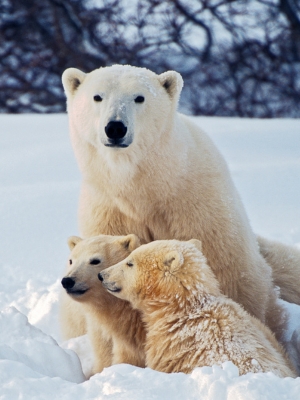In the UK, Chester Zoo has unveiled the first images of a baby Bornean orangutan born at the end of August. In the wake of this widely publicized event, officials from the zoo have proclaimed that the birth of such a rare orangutan was a “positive step in the right direction” for the protection of the highly threatened species, and that the birth “holds an incredible amount of significance for those fighting for this species.”
Mark Brayshaw, the head of mammals at the zoo, said: “The birth of an animal that’s so rare is always something to celebrate and seeing the new baby in the arms of mum Sarikei is incredibly special.” The birth of the Critically Endangered orangutan at the UK zoo, however, has very little to do with the conservation of the species in the wild at all.
Captive Breeding Is Not a Viable Route for Orangutan Conservation
The International Union for the Conservation of Nature (IUCN) lists Bornean orangutans as Critically Endangered, ranking them as one of the species that requires the highest conservation priority in the world to protect them from extinction. Of the nine total Red List categories, Critically Endangered is the last before a species becomes Extinct in the Wild.
Established in 1964, the IUCN’s Red List of Threatened Species has become the world’s most comprehensive information source on the global extinction risk status of 150,388 animal, fungus, and plant species. Despite the zoo’s claims of supporting these fragile apes’ conservation efforts through this birth, however, the IUCN does not recommend captive breeding as a solution to improve Bornean orangutans’ conservation status in the wild.
Instead, the top conservation actions suggested by the IUCN for Bornean orangutan species recovery include protection of critical forest habitat, resource protection of land and water within these critical areas, and the implementation of legislation to protect orangutan habitat in which illegal logging and hunting occurs.
Reintroducing Captive-Born Orangutans to the Wild Would Be All but Impossible
Even with these recommendations in place, many zoos continue to argue that their main purpose for breeding the apes in captivity is to maintain a viable captive population should a need to introduce them into the wild arises. Introducing captive-born orangutans into the wild, however, would be a monumental task, with a likely high failure rate and unrealistically high financial cost.
Orangutans in the wild spend up to eight years with their mothers. The first few years of life are crucial learning periods, as infant orangutans are taught a wide range of skills to survive, including nest-building, avoiding predators, foraging, socializing, and successfully integrating into a wild orangutan population. Thus, the natural conditions in a forest and complex behaviors necessary for survival in the wild are near-impossible to replicate in a zoo. Further, orangutans in zoos may be too habituated to humans; over-habituation to humans can cause orangutans in the wild to be more vulnerable to poachers and hunters. Also, captive-born and bred orangutans may not be as resistant to diseases as wild orangutans.
Indeed, the IUCN confirmed these challenges in its guidelines for the wild reintroduction of great apes. The IUCN state that it is a significant challenge to rehabilitate and release rescued wild-born infant orangutans that had not lived in the wild with their mothers for at least one year, as mother-infant interactions hold paramount importance to an individual’s success and thus survival rate in the wild. It appears, based on the IUCN’s conservation advice and biological factors of the reintroduction process, that keeping and breeding orangutans in captivity counteracts any meaningful conservation efforts for the species entirely.
Breeding Orangutans in Zoos Does Not Aid in Species Conservation
Therefore, although zoos claim that their primary functions are to educate the public and contribute to the conservation of threatened species, they achieve neither of these goals by breeding orangutans in captivity and are likely detracting from genuine conservation efforts by doing so. As a result, the misinformation promoted by zoos for personal gain must be questioned, fact-checked, called out, and resisted.
Resources should instead be allocated towards genuine conservation efforts, such as protecting and connecting the habitats of wild orangutans, addressing human-orangutan conflict, and tackling the illegal wildlife trade.
Please join us in exposing zoos for what they are: archaic institutions maintaining collections of threatened animals in captivity for entertainment purposes and financial gain that does little to nothing for the betterment of wild populations; even those potentially facing extinction in the very near future.
Keep Wildlife in the Wild,
Devan

 Dear Reader,
Dear Reader,